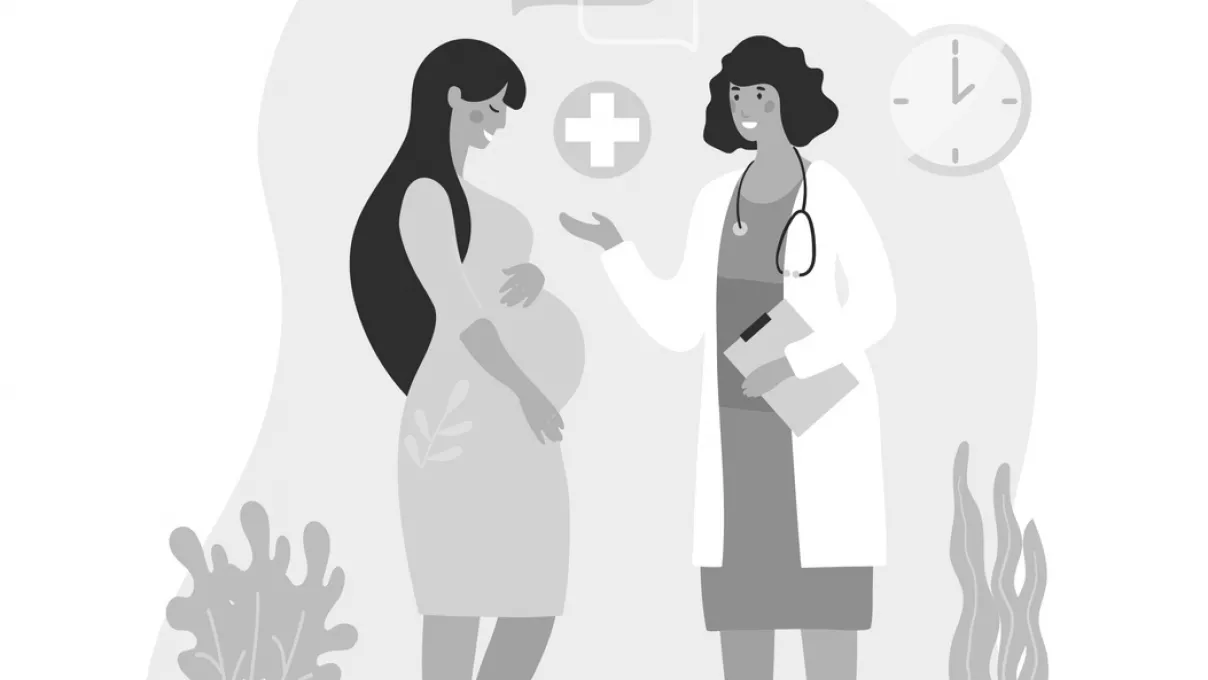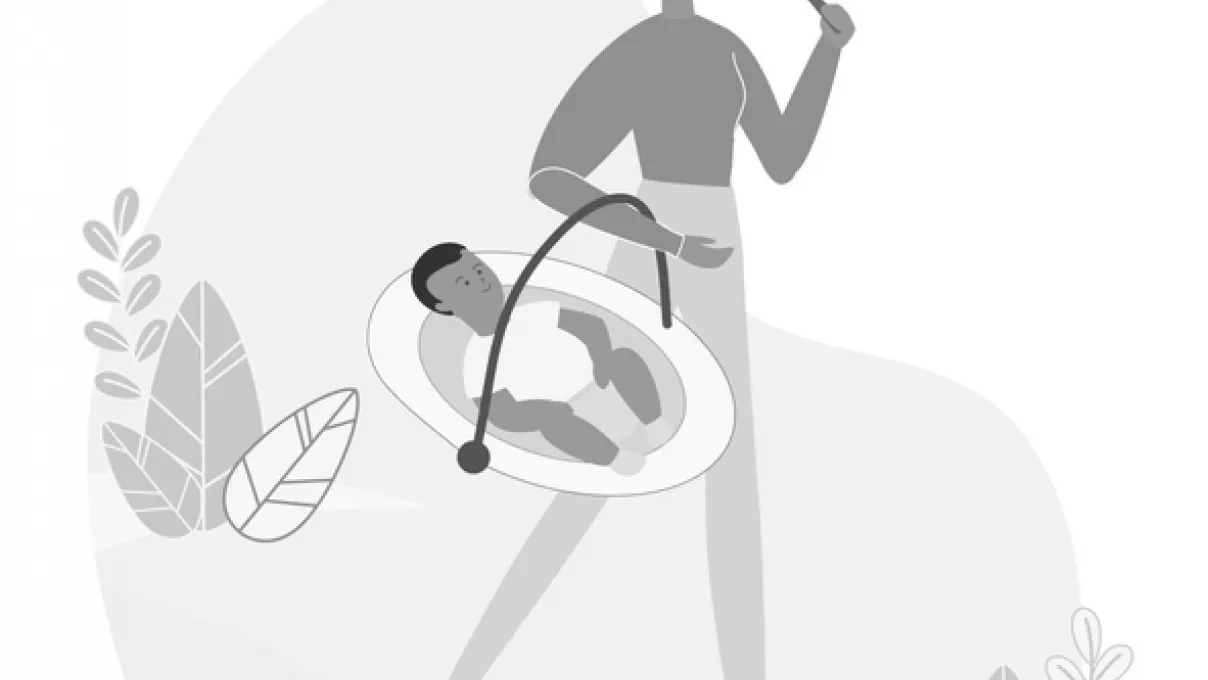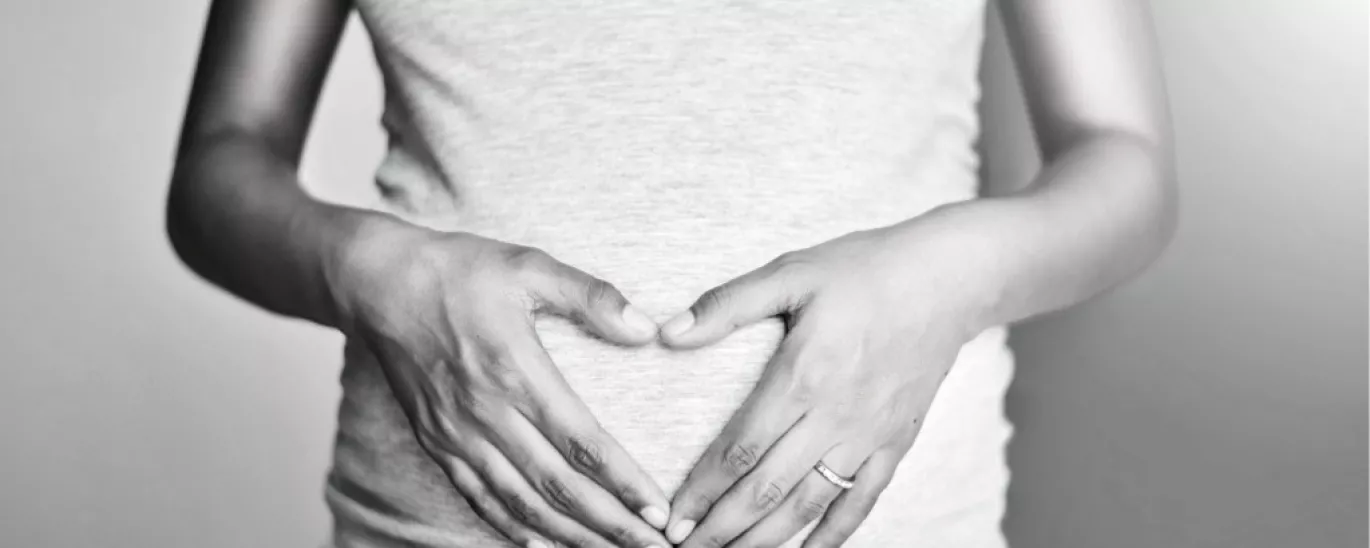Because our priority is to offer pregnant women, couples and babies the best of French and American medical practices, the American Hospital of Paris Maternity created the Maternal Emotional Security Program.
The program was designed based on scientific evidence showing that a child’s emotional security develops gradually during the pregnancy, the birth, and especially throughout the first two years of life.
Becoming a parent is one of the most challenging events in the life of any woman, man or couple. For the mother, pregnancy is a maturational crisis akin to adolescence. It is a pivotal stage of life that reveals each woman’s personal strengths and vulnerabilities. During pregnancy, transitioning from being the child of one’s own parents to becoming the mother of an as yet unknown child implies bodily transformation, psychological changes and the recasting of family ties.
Following the birth, the quality of the infant’s relationship with his or her mother and parents will largely determine the way in which that child develops, in particular by establishing:
- Patterns of attachment, which will enable her to build inner security and relationships with others
- Bodily self: the first structuring of his inner world based on his consciousness of his own body
- Emotional regulation, which will determine her ability to feel empathy and tenderness and to access her inner world
The aim of guiding mothers and couples as they form a bond with their infant, starting from the fourth month of pregnancy and continuing for the first 24 months of life, is to ensure the prevention, screening and treatment of any early disorders relating to the child's development or to parenthood. The American Hospital of Paris’s Maternal Emotional Security Program is dedicated to the child’s “first 1,000 days” – a recognized concept in child development that underscores the extreme importance of this period, which has a significant impact on the development and emotional security of each child, with lifelong impacts on health and well-being.
"A TRUSTING RELATIONSHIP WITH OUR TEAM BEGINS WHEN YOU REGISTER AT THE MATERNITY"
There is sufficient scientific evidence showing that the quality of the relationship between the maternity team and the mother-to-be and couple is one of the most important factors in ensuring a secure birth. The American Hospital of Paris therefore strives to foster a trusting relationship during the crucial moments of the pregnancy, birth and postnatal period.
Early Prenatal Interview (EPI)
When a pregnant woman or couple registers at the maternity, an Early Prenatal Interview (EPI) is proposed. This interview became mandatory for all pregnancies on May 1, 2020 (Section L. 21221of the French Public Health Code).
In our maternity, the EPI is an essential appointment conducted by trained midwives which allows them to meet each mother-to-be and couple. During the interview, our healthcare system as it relates to pregnancy and the birth, as well as our medical services, are explained. The EPI is also an opportunity to demystify the strengths and vulnerabilities of pregnant women and couples, offering insights that can be shared and built upon to define a birth plan.
In light of scientific literature demonstrating that 54 percent of pregnant women suffer from anxiety and 15 percent experience prenatal depression, the American Hospital of Paris Maternity proposes the self-rating General Health Questionnaire-28, psychosomatic medicine’s gold standard for the detection of emotional distress.

THIRD TRIMESTER
Our maternity’s obstetricians, midwives and anesthesiologists all consider the third trimester visits to be particularly important: with the birth now imminent, these visits are an opportunity to realign the birth plan to reality.
Because scientific literature shows that 15 percent of all new mothers experience postpartum depression six weeks after the birth, we offer mothers-to-be the option of taking the Edinburgh Postnatal Depression Scale (EPDS) test during a third trimester visit. The EPDS is the gold standard for identifying women who are likely to experience postpartum depression.
LEAVING THE MATERNITY
The postpartum period is one of life’s most intense experiences for women and couples, when they discover the realities of having a newborn. This period of discovery, shared with the maternity team, allows us to adjust to the changing needs of the mother-infant dyad and the parents-infant triad.
Because scientific literature shows that approximately 5 percent of women who experience an “unexpected event in the delivery room” develop post-traumatic stress disorder, our post-natal team proposes the Perinatal Post-Traumatic Stress Disorder Questionnaire (PPQ), the gold standard for identifying this risk.

POSTNATAL CONSULTATIONS
Our Maternal Emotional Security Program pays close attention to women and/or mother-infant dyads who have undergone treatment in:
- Fetal medicine
- Reproductive medicine
- Neonatal medicine
We propose a specific pediatric psychiatry consultation to these mother-infant dyads one month following the birth.
MEDICAL SERVICES
To better meet the needs of pregnant women, couples and infants, the American Hospital of Paris Maternity gives patients access to a full range of modern mental health-related medical resources. All of the tools described below have been scientifically approved and are used in accordance with team-implemented protocols.
- Screening consultations with a psychologist
- Consultations with child psychologists specialized in perinatal health, who propose multidisciplinary care pathways including:
- General check-ups
- Psychopharmacological strategies
- Psychotherapy with focus on perinatal psychopathology
- Trauma desensitization techniques: EMDR, acupressure, hypnosis
- Prenatal and at-home postnatal assistance provided by a psychomotor therapist specialized in the Bullinger sensory-motor method
